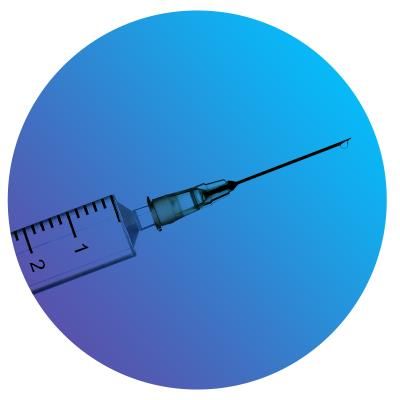

- Home
- Companies
- Biosceptre International Limited
- Products
- CAR T-Cell Therapy

CAR T-Cell Therapy
CAR T-cell therapy is the engineering of a patient’s T cells, a type of white blood cell. A small portion of these cells are collected, from a patient’s blood sample, and re-engineered to produce chimeric antigen receptors (CAR’s) on the cell surface. The chimeric antigen receptors give T cells the ability to target cancer cells. They comprise two specific components: one, an antibody fragment allowing CARs to identify targets on the cancer cell surface; and the second, creates signals that activate T cells to attack cancer cells. Hence, CAR T-cells. These cells are then expanded and reinjected into the patient where they multiply and seek out and attack cancer cells throughout the body.
Step 1
A blood sample is taken from the patient
Step 2
The immune T cells are filtered out of the sample
Step 3
An engineered carrier delivers genes into T cells, modifying them to target nfP2X7 on cancer cells
Step 4
Modified cells are expanded in the laboratory
Step 5
Modified CAR-T cells are injected back into the patient
CAR T-cell therapy has been shown the bring positive outcomes for patients suffering from cancers that are resistant to other treatments.
By combining the specificity of nfP2X7-targeting antibodies directly with the patient’s own immune cells, we believe that an nfP2X7 -targeted CAR T therapy has the potential to deliver new, safe and powerful personalised therapeutic options to a great number of cancer patients who are facing limited treatment alternatives.
